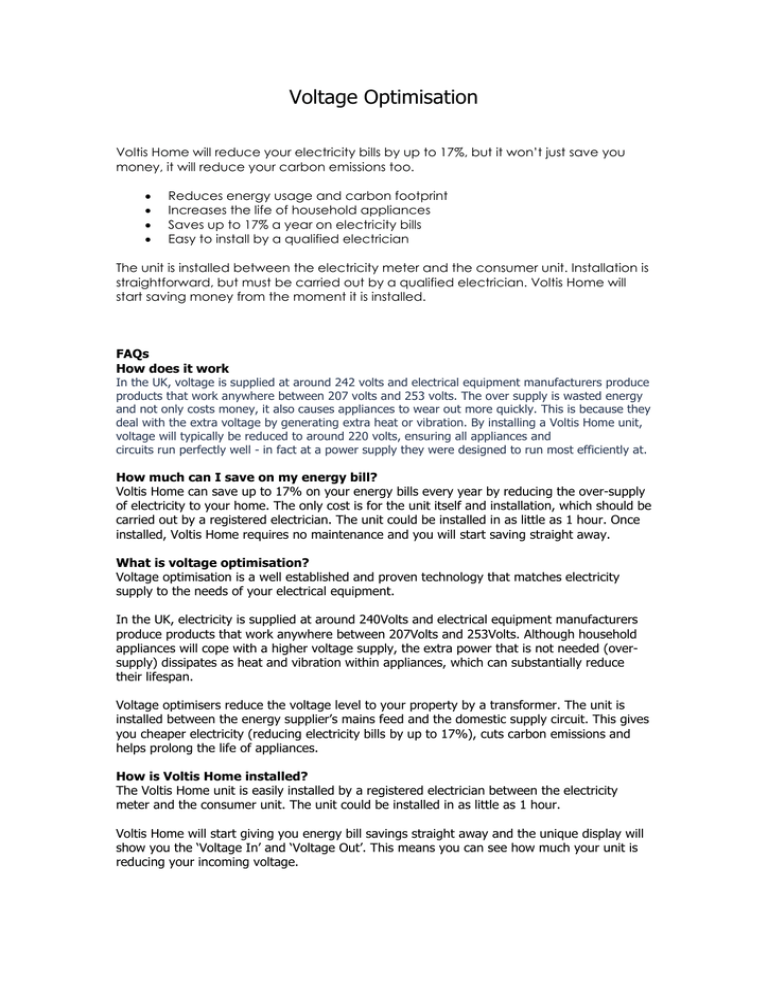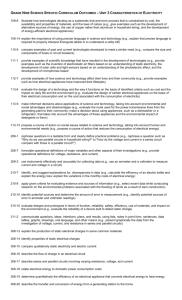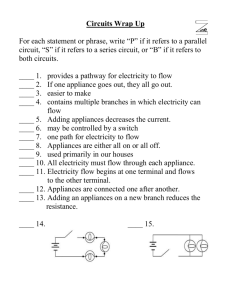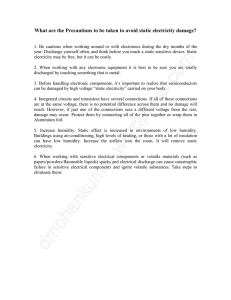Voltage Optimisation
advertisement

Voltage Optimisation Voltis Home will reduce your electricity bills by up to 17%, but it won’t just save you money, it will reduce your carbon emissions too. • • • • Reduces energy usage and carbon footprint Increases the life of household appliances Saves up to 17% a year on electricity bills Easy to install by a qualified electrician The unit is installed between the electricity meter and the consumer unit. Installation is straightforward, but must be carried out by a qualified electrician. Voltis Home will start saving money from the moment it is installed. FAQs How does it work In the UK, voltage is supplied at around 242 volts and electrical equipment manufacturers produce products that work anywhere between 207 volts and 253 volts. The over supply is wasted energy and not only costs money, it also causes appliances to wear out more quickly. This is because they deal with the extra voltage by generating extra heat or vibration. By installing a Voltis Home unit, voltage will typically be reduced to around 220 volts, ensuring all appliances and circuits run perfectly well - in fact at a power supply they were designed to run most efficiently at. How much can I save on my energy bill? Voltis Home can save up to 17% on your energy bills every year by reducing the over-supply of electricity to your home. The only cost is for the unit itself and installation, which should be carried out by a registered electrician. The unit could be installed in as little as 1 hour. Once installed, Voltis Home requires no maintenance and you will start saving straight away. What is voltage optimisation? Voltage optimisation is a well established and proven technology that matches electricity supply to the needs of your electrical equipment. In the UK, electricity is supplied at around 240Volts and electrical equipment manufacturers produce products that work anywhere between 207Volts and 253Volts. Although household appliances will cope with a higher voltage supply, the extra power that is not needed (oversupply) dissipates as heat and vibration within appliances, which can substantially reduce their lifespan. Voltage optimisers reduce the voltage level to your property by a transformer. The unit is installed between the energy supplier’s mains feed and the domestic supply circuit. This gives you cheaper electricity (reducing electricity bills by up to 17%), cuts carbon emissions and helps prolong the life of appliances. How is Voltis Home installed? The Voltis Home unit is easily installed by a registered electrician between the electricity meter and the consumer unit. The unit could be installed in as little as 1 hour. Voltis Home will start giving you energy bill savings straight away and the unique display will show you the ‘Voltage In’ and ‘Voltage Out’. This means you can see how much your unit is reducing your incoming voltage. How can Voltis Home improve the lifespan of my appliances? As well as reducing your electricity bills, Voltis Home improves the life of your household appliances by reducing the electrical over-supply. The electricity supply in the UK is around 240Volts (although it can be as high as 253Volts), yet your electrical equipment is designed to run most efficiently at around 220Volts. This over-supply of energy not only costs you money, it also reduces the lifespan of your domestic appliances. Voltis Home deals with this over-supply of energy; saving you money, reducing carbon emissions and helping your appliances to last longer. How can Voltis Home reduce my carbon footprint? Scientists agree that the Earth's climate is being directly affected by the production of CO2. For many people around the world, resulting climate changes are having negative and sometimes, catastrophic effects. Fortunately, there are measures we can take to reduce the impact we are having on climate change. The installation of a Voltis Home unit is a simple way to reduce your carbon footprint, as well as saving money on your energy bill. Voltis Home can reduce CO2 emissions and the carbon footprint of an average home by up to 581kgs of CO2 a year.



